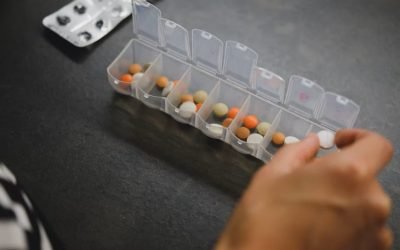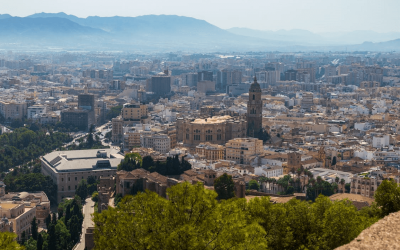Last updated: November, 2025
For many individuals beginning recovery, the terms “detox” and “rehab” can sound interchangeable. In reality, they represent two distinct but connected stages of healing. Detox focuses on the physical process of clearing substances from the body, while rehab addresses the psychological and emotional recovery that follows.
At Hacienda Paradiso, both treatments are integrated into a seamless journey: from safe, medically supervised detox to comprehensive rehabilitation in a calm, restorative environment in Málaga, Spain. Understanding how these two phases differ can help individuals and families take the next confident step toward recovery.
What Is a Detox Center?
A detox center provides short-term medical care during the withdrawal phase: the period when the body adjusts to the absence of alcohol, drugs, or medications. This phase can be physically demanding and, in some cases, risky without medical supervision.
When a person stops using an addictive substance, their body reacts with withdrawal symptoms such as:
- Tremors, sweating, and headaches
- Nausea, vomiting, or stomach discomfort
- Restlessness, anxiety, and insomnia
- Increased heart rate or blood pressure
- Fatigue, irritability, and low mood
These reactions vary depending on the substance and length of use. The goal of detox is to stabilise the body, reduce discomfort, and prepare the individual for the next stage of treatment: emotional and behavioural rehabilitation.
How Detox Works
At Hacienda Paradiso, detoxification begins with a full medical assessment and a personalised detox plan. Depending on the substance, detox may involve:
- Gradual tapering (slowly reducing use)
- Complete abstinence with medical support and prescribed medication
- Nutritional and vitamin therapy to restore balance (particularly B1, often depleted by alcohol use)
The detox process usually lasts between 7 and 21 days, depending on the level of dependency and overall health. It is always carried out under 24-hour medical supervision to ensure safety and comfort.
As many discover, detox is not just physical, it also begins the emotional process of letting go. Anxiety, fear, and uncertainty are normal responses during this time. Compassionate support helps individuals navigate these emotions with stability and care.
What Is Rehab?
Rehabilitation (rehab) focuses on the deeper aspects of recovery: understanding addiction, healing emotional wounds, and developing new coping mechanisms.
While detox clears the body, rehab rebuilds the mind and spirit. At Hacienda Paradiso, rehab begins once the body is stabilised and the person is ready to work on long-term change.
Rehab treatment includes:
- Therapy and counselling to address underlying causes and patterns
- Group support to foster connection and shared understanding
- Holistic practices such as mindfulness, yoga, and creative expression
- Relapse prevention and stress management training
- Aftercare planning to ensure lasting results after leaving the centre
This stage typically lasts several weeks or months, depending on individual progress and needs.
Detox vs. Rehab: The Key Differences
| Aspect | Detox Centers | Rehabilitation Centers |
|---|---|---|
| Primary focus | Physical cleansing of the body | Psychological and behavioural healing |
| Duration | 1–3 weeks (short-term) | Several weeks to months (long-term) |
| Supervision | Medical monitoring 24/7 | Therapeutic and emotional guidance |
| Goal | Stabilisation and safety | Lasting recovery and life restructuring |
| Environment | Calm, clinical setting | Supportive, community-oriented retreat |
Both are essential phases of recovery — detox prepares the body, while rehab restores the person’s sense of self and connection.
Outpatient vs. Inpatient Detox
At Hacienda Paradiso, detox is offered in both outpatient and inpatient formats, depending on each person’s needs and level of dependency.
- Outpatient detox allows individuals to remain at home while attending medical check-ups and receiving prescriptions to manage withdrawal. This option suits mild addictions and strong home support systems.
- Inpatient detox, on the other hand, provides 24-hour supervision in a peaceful clinical environment. This setting ensures safety, comfort, and immediate response to any medical complications. It is recommended for moderate to severe addictions or when multiple substances are involved.
Most individuals benefit from inpatient detox, as it creates a safe pause from external triggers and establishes a strong foundation for rehabilitation.
From Detox to Rehab
Detoxification alone is rarely enough to sustain long-term recovery. Once the body is free from toxins, emotional and behavioural healing must begin.
At Hacienda Paradiso, detox and rehab are integrated into one continuous treatment programme, ensuring smooth transition between stages. After detox, residents begin therapy designed to:
- Address emotional roots of addiction
- Rebuild coping skills for daily challenges
- Learn techniques to manage cravings and stress
- Restore confidence, balance, and self-awareness
The combination of medical safety and therapeutic guidance helps individuals move from survival to renewal.
Why Choose Hacienda Paradiso in Spain?
Located in Málaga’s tranquil countryside, Hacienda Paradiso is the world’s first eco rehab, a sanctuary where recovery meets sustainability and nature. The centre provides:
- Private or shared accommodation surrounded by nature
- Organic Mediterranean meals and eco-conscious living
- Medical and therapeutic care from experienced professionals
- A warm, international environment focused on healing, not judgement
Here, recovery happens in harmony with nature: a gentle space where the body recovers, the mind quiets, and life begins anew.
Healing begins with safety, care, and connection. Request more information to learn how Hacienda Paradiso’s detox and rehab programmes can help restore balance, awareness, and lasting recovery.
Frequently Asked Questions: Detox Centers and Rehab
Detox centers focus on helping the body safely withdraw from substances, while rehab centers work on the psychological and behavioural aspects of recovery. Detox is typically short-term, preparing individuals for the longer, more comprehensive work of rehabilitation.
Detox can last from 7 to 21 days depending on the type of substance, duration of use, and health condition. Once the body stabilises, rehabilitation begins, focusing on emotional healing, behavioural change, and relapse prevention.
Detox alone addresses only the physical side of addiction. Without therapy, individuals remain vulnerable to emotional triggers and relapse. Rehab helps rebuild inner resilience, making recovery sustainable and meaningful.
Spain offers a mild climate, natural beauty, and privacy, ideal conditions for healing. At Hacienda Paradiso, residents experience medical safety within a serene, eco-friendly retreat surrounded by nature, creating the perfect balance between clinical care and emotional restoration.
Inpatient treatment is best for individuals with moderate to severe addictions, or those needing structure and supervision. Outpatient care suits people with mild dependency and strong support systems. During intake at Hacienda Paradiso, specialists assess your specific situation and recommend the most appropriate path.








